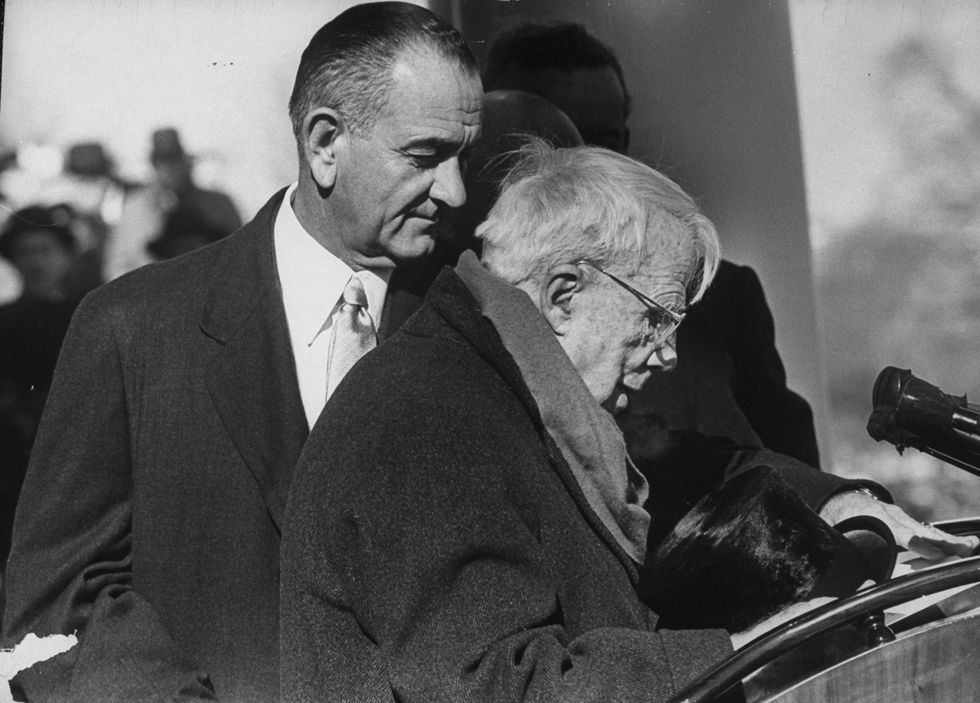- Joined
- Sep 23, 2006
- Messages
- 19,295
- Reaction score
- 8,601
- Gender
- Undisclosed
- Political Leaning
- Undisclosed
This video has attracted a record setting 3.4 billion views and has become my present day "theme song" after suddenly realizing less than two years ago that I may have met "the one" 50 years before and "let her go" during our second meeting. I had repressed the memory of the squandered opportunity for 50 years.
Out of the blue, something she did recently awakened my memory of what had happened so long ago and caused me to "visit" for the first time what had happened.
Ten minutes long award winning indie film, a birds-eye-view into a contemporary first encounter that could just as easily have been unremarkable, as not.
What makes the difference?
Background :
 ...Writer: Sam Berrill & Tom Turner (story by Tom Turner)
...Writer: Sam Berrill & Tom Turner (story by Tom Turner)
"The idea and the story came to me fairly quickly when I was thinking about people I met who turned out to be significant in my personal life many years later, but when I thought back to how we met, how we got on etc there was no way to know how vital these people would be. Whether it was long lasting friendships or meeting my partner, I kept on thinking about how oddly coincidental these meetings were despite having such an important future impact on me..."

 en.wikipedia.org
"Frost spent the years 1912 to 1915 in England, where among his acquaintances was the writer Edward Thomas.[2] Thomas and Frost became close friends and took many walks together. One day, as they were walking together, they came across two roads. Thomas was indecisive about which road to take, and in retrospect often lamented that they should have taken the other one. After Frost returned to New Hampshire in 1915, he sent Thomas an advance copy of "The Road Not Taken". Thomas took the poem seriously and personally, and it may have been significant in his decision to enlist in World War I. Thomas was killed two years later in the Battle of Arras ."
en.wikipedia.org
"Frost spent the years 1912 to 1915 in England, where among his acquaintances was the writer Edward Thomas.[2] Thomas and Frost became close friends and took many walks together. One day, as they were walking together, they came across two roads. Thomas was indecisive about which road to take, and in retrospect often lamented that they should have taken the other one. After Frost returned to New Hampshire in 1915, he sent Thomas an advance copy of "The Road Not Taken". Thomas took the poem seriously and personally, and it may have been significant in his decision to enlist in World War I. Thomas was killed two years later in the Battle of Arras ."

 www.biography.com
Lyndon B. Johnson assisting Robert Frost during the inaugural ceremony for John F. Kennedy
www.biography.com
Lyndon B. Johnson assisting Robert Frost during the inaugural ceremony for John F. Kennedy

Out of the blue, something she did recently awakened my memory of what had happened so long ago and caused me to "visit" for the first time what had happened.
Ten minutes long award winning indie film, a birds-eye-view into a contemporary first encounter that could just as easily have been unremarkable, as not.
What makes the difference?
Background :

Case Study: The making of "A Glimpse" by Tom Tuner
Tom Turner is a writer, director, and producer. He is the co-writer and director for A Glimpse
www.indieactivity.com
"The idea and the story came to me fairly quickly when I was thinking about people I met who turned out to be significant in my personal life many years later, but when I thought back to how we met, how we got on etc there was no way to know how vital these people would be. Whether it was long lasting friendships or meeting my partner, I kept on thinking about how oddly coincidental these meetings were despite having such an important future impact on me..."

The Road Not Taken - Wikipedia

Why Robert Frost Didn't Get to Read the Poem He Wrote for John F. Kennedy's Inauguration
Unable to recite his new work on a blindingly bright day, the poet improvised to deliver a memorable moment for the incoming president.

Last edited:



